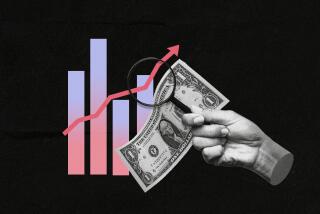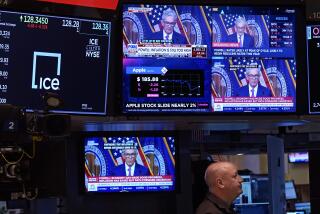U.S. is among developed economies with highest income inequality
- Share via
Reporting from New York — The United States continues to outpace other developed economies globally with one of the biggest divides between rich and poor, according to a new report.
The Organization for Economic Cooperation and Development reported that the average income of the richest 10% in developed nations is nine times that of the poorest 10%, up from five times as large in the 1980s. The difference between the highest and lowest paid is greater in the United States than in most other wealthy countries, while inequality has risen faster in others such as Sweden and Finland, the report says.
“This phenomenon is not confined to the U.S. — it’s much more general to advanced countries in the world,” said Edward Wolff, a professor studying income inequality at New York University.
The study from Paris-based OECD, whose members are 34 developed countries, joins a growing number of recent studies showing that income inequality has grown since the 1970s after falling in the decades after World War II. This is the organization’s first report on the subject since 2008.
A report released last month by the nonpartisan Congressional Budget Office said that the income of the richest 1% of American households rose 275% between 1979 and 2007, while the income of the poorest 20% grew 18% over the same period.
These trends have helped fuel the Occupy Wall Street movement and its protest of the growing gap between the rich and poor.
While most of the focus has been on the United States, the OECD report underscores that inequality has increased in most wealthy countries. Ireland, France, Greece and Turkey are among the few nations where inequality has decreased in the last 30 years.
In the United States, the average income among the richest 10% is 14 times greater than the average income among the poorest 10%, up from a 10-to-1 ratio in the 1980s. The countries where the ratio between the incomes of the top 10% and the bottom 10% is the lowest — around 5 to 1 — are Denmark, the Czech Republic, Belgium and Norway.
OECD officials said that inequality has been a problem because it appears to have made it harder for poor people in wealthy countries to rise up the economic ladder. Wells Fargo Securities released a report last week showing that fewer poor Americans were moving up the economic ladder than in the past.
Angel Gurria, secretary-general of the OECD, said that with rising inequality “the social compact is starting to unravel in many countries.”
“Uncertainty and fears of social decline and exclusion have reached the middle classes in many societies,” Gurria said. “People feel they are bearing the brunt of a crisis for which they have no responsibility, while those on high incomes appear to have been spared. Addressing the question of ‘fairness’ is a condition sine qua non for the necessary restoring of confidence today.”
The OECD reported that the growing inequality was caused in part by technological progress, which sends a greater share of national income to workers who are technologically literate. But it also blamed policy changes in recent decades, such as the lowering of tax rates for the wealthy and cuts to benefit programs for the poor.
“The winner-take-all mentality has spread,” said Chad Stone, chief economist at the Center on Budget and Policy Priorities.
The report calls for a reform of tax policies and an increase in support for education starting from early childhood.
More to Read
Inside the business of entertainment
The Wide Shot brings you news, analysis and insights on everything from streaming wars to production — and what it all means for the future.
You may occasionally receive promotional content from the Los Angeles Times.










